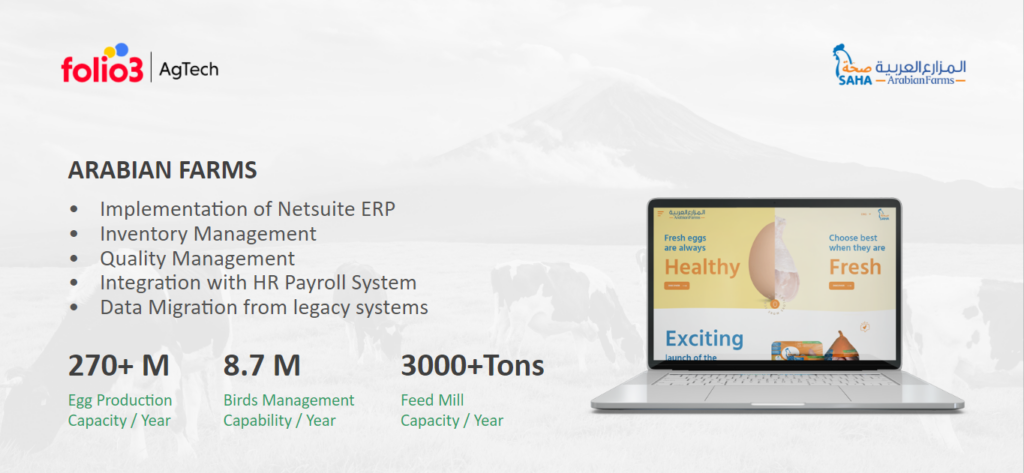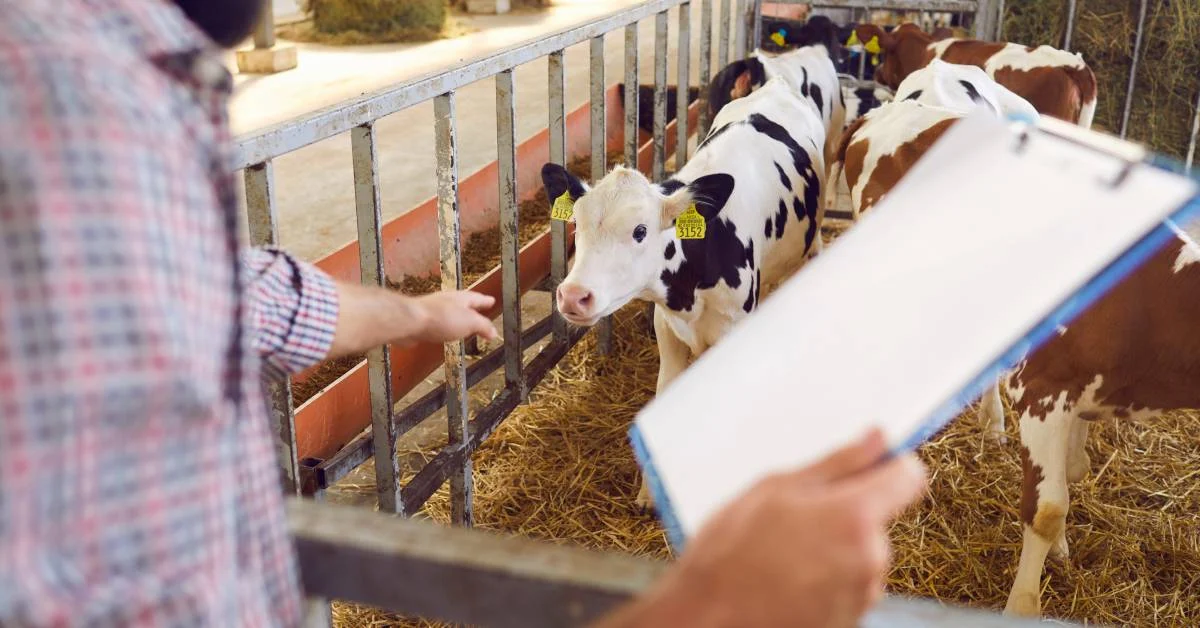Did you know that breeder flocks, responsible for producing the next generation of laying hens, directly impact up to 80% of a poultry farm’s overall profitability? Their health, egg production, and fertility are critical factors in ensuring a steady supply of high-quality chicks.
These flocks are the foundation for future generations, impacting your birds’ health, hatchability, and overall productivity. A comprehensive approach integrating essential management strategies with cutting-edge technological solutions is required.
Effective poultry management encompasses various aspects, including nutrition, health, environmental control, and breeding practices. By optimizing these factors, farmers can enhance productivity, improve flock health, and increase yield.
Technological advancements have revolutionized poultry management, providing tools and systems that enable precise monitoring and control of various parameters. Innovations such as automated feeding systems, climate control technologies, and health monitoring devices help maintain optimal conditions for breeder flocks.
This blog deepens into maximizing breeder flock performance, the cornerstone of thriving poultry management and operations. But that’s not all! We’ll introduce you to the innovative world of Agtech, explicitly focusing on Poultry Management Software from Folio3.
This powerful tool empowers poultry management and farmers to streamline breeder flock management, optimize performance, and achieve greater profitability. So, keep reading this blog if you want to transform your breeder flock into a productivity powerhouse and ensure a healthy and profitable future for your poultry farm.
Understanding Breeder Flock Performance
Breeder flock performance refers to the overall efficiency and effectiveness of a group of birds chosen explicitly for breeding purposes. It encompasses several key aspects, including:
- Profitability: High-performing flocks translate to a steady supply of healthy chicks, minimizing chick mortality and maximizing your overall production potential. Increased hatchability and survival rates of chicks directly contribute to better financial outcomes.
- Chick Quality: Strong, healthy chicks from well-performing flocks grow faster and have better feed conversion ratios, increasing profitability. Healthy breeder flocks produce robust offspring that are more resistant to diseases and have better growth rates.
- Sustainability: Efficient flocks require fewer resources per chick produced, minimizing environmental impact. Optimizing breeder flock performance reduces waste and energy, contributing to more sustainable farming practices.
- Genetic Progress: Maintaining high-performing breeder flocks ensures the continuous improvement of genetic traits in future generations. This leads to better growth rates, feed efficiency, and overall health of the poultry stock.
- Feed Efficiency: High-performing breeder flocks convert feed into body mass more effectively. This reduces feed costs and ensures that more resources are directed toward growth rather than maintenance.
- Disease Resistance: Well-managed breeder flocks with high-performance levels are generally healthier and more disease-resistant. This reduces the need for medical interventions and contributes to a safer food supply.
- Operational Efficiency: Consistent breeder flock performance leads to predictable production schedules and better inventory management. This enables smoother operations and more effective planning.
- Customer Satisfaction: High-quality chicks result in better performance at the customer’s end, leading to increased customer satisfaction and repeat business.
- Market Competitiveness: Farms with high-performing breeder flocks can maintain a competitive edge due to superior product quality and production efficiency.
Why is breeder flock performance so important? It’s simple: these birds are the foundation of your entire poultry management and operation. Their success directly impacts:
- Profitability: High-performing flocks translate to a steady supply of healthy chicks, minimizing chick mortality and maximizing your overall production potential.
- Chick Quality: Strong, healthy chicks from well-performing flocks grow faster and have better feed conversion ratios, increasing profitability.
- Sustainability: Efficient flocks require fewer resources per chick produced, minimizing environmental impact.
- Labor Efficiency: High-performing flocks require less intervention and management, reducing labor costs and allowing staff to focus on other critical areas of operation.
- Animal Welfare: Better-performing breeder flocks often result from good management practices, which include proper nutrition, housing, and health care. This ensures higher animal welfare standards, which are increasingly essential for consumer trust and regulatory compliance.
Key Performance Indicators (KPIs): Measuring Success
So, how do you measure a breeder flock’s performance? Poultry farmers rely on essential Key Performance Indicators (KPIs) to track progress and identify areas for improvement. By consistently monitoring these KPIs, poultry farmers can gain valuable insights into their flock’s health, production levels, and efficiency.
This data allows them to make informed decisions regarding breeding practices, nutrition, environmental management, and poultry management, ultimately maximizing breeder flock performance and securing the future success of their poultry management and operation.
Here are some of the most important KPIs:
- Hen-Day Egg Production (HDEP): This KPI tracks the daily average number of eggs laid per flock.
- Fertility Rate: As mentioned earlier, this measures the percentage of eggs fertilized by the roosters.
- Hatchability: This KPI indicates the percentage of fertilized eggs hatch into healthy chicks.
- Chick Quality: Metrics like chick weight, uniformity, and overall health are used to assess chick quality.
- Feed Conversion Ratio (FCR): This measures the amount of feed a hen consumes to produce one egg. A lower FCR indicates better feed efficiency.
Common Issues Affecting Breeder Flock Performance
Even with the best intentions, breeder flock performance can be hindered by various factors. Here, we’ll delve into some common challenges faced by poultry management and farmers, along with strategies to overcome them:
Nutritional Deficiencies
A balanced diet is the cornerstone of a healthy and productive flock. Nutritional deficiencies can manifest in several ways:
- Reduced Egg Production: Hens lacking essential nutrients like protein, calcium, or vitamins will experience a decline in egg laying.
- Poor Egg Quality: Thin shells, misshapen eggs, and internal defects can all be signs of inadequate nutrition, which can impact hatchability and chick health.
- Lowered Fertility: Deficiencies in specific vitamins and minerals can negatively affect sperm production and overall fertility rates.
Combating Nutritional Issues
- Feeding Regimens: It is crucial to implement a scientifically formulated breeder diet that considers breed, age, and production stage.
- Nutritional Supplements: Consulting a poultry nutritionist might be necessary to identify and address specific nutrient deficiencies.
- Feed Quality Control: Regularly monitoring feed quality and ensuring proper storage minimizes the risk of nutritional imbalances.
Genetic Factors
Genetics significantly determines a flock’s potential for egg production, fertility, and chick quality.
- Selection Matters: Choosing high-quality breeder stock from reputable sources ensures birds with the desired genetic traits for optimal performance.
- Breeding Strategies: Implementing selective breeding programs or establishing high-performance breeding lines can significantly enhance flock performance.
Optimizing Genetics
- Pedigree Tracking: Maintaining detailed records of breeding lineages allows for targeted selection of birds with desired traits.
- Genetic Diversity: Introducing new bloodlines occasionally can help prevent inbreeding depression and maintain genetic vigor in the flock.
Environmental Stressors
A comfortable and well-managed environment is essential for optimal flock performance. Everyday environmental stressors include:
- Inadequate Housing: Insufficient space, overcrowding, or poorly designed housing structures can lead to stress, injuries, and decreased production.
- Poor Ventilation: Inadequate air circulation can contribute to ammonia buildup, respiratory issues, and decreased overall flock health.
- Suboptimal Lighting: Improper lighting regimes can disrupt the birds’ natural breeding cycle and negatively impact egg production.
Creating a Stress-Free Environment
- Proper Housing Design: Ensuring adequate space, proper ventilation, and comfortable nesting areas is crucial for bird well-being.
- Environmental Monitoring: Regularly monitoring temperature, humidity, and ammonia levels helps maintain optimal conditions.
- Lighting Programs: Implementing well-designed lighting programs that consider intensity and duration promotes optimal egg laying and reproduction.
Health Challenges
Disease outbreaks and health issues can significantly impact breeder flock performance. Some common challenges include:
- Infectious Diseases: Newcastle disease, Avian Influenza, and Marek’s disease can be highly contagious and cause significant mortality and production decline.
- Internal Parasites: Roundworms, coccidia, and other internal parasites can affect nutrient absorption and overall flock health.
- Nutritional Deficiencies (indirectly): As mentioned earlier, deficiencies can lead to compromised immune systems and increased susceptibility to infections.
Maintaining Flock Health
- Vaccination Programs: Implementing a comprehensive vaccination program helps prevent major infectious diseases.
- Biosecurity Measures: Strict biosecurity protocols, including proper sanitation and pest control, minimize the risk of disease introduction.
- Parasite Control: Regular administration of dewormers and other anti-parasitic medications helps maintain flock health.
Strategies for Maximizing Breeder Flock Performance
Now that we’ve explored the common roadblocks to success, let’s delve into the strategies that can propel your breeder flock’s performance and poultry management to new heights. Here, we’ll discuss critical areas for improvement and provide practical tips for implementation:
Nutritional Management
- Balanced Diets: Breeder birds have specific nutritional requirements throughout their lifecycle. Providing a scientifically formulated diet that considers factors like age, breed, and production stage is paramount. This diet should include adequate protein, calcium, essential vitamins, and minerals to ensure optimal egg production, fertility, and chick health.
- Feed Efficiency Analysis: Feed represents a significant cost in poultry production. Regularly analyzing feed conversion ratios (FCR) helps identify areas for improvement. Poultry nutritionists can assist in optimizing feeding regimens to minimize feed waste and maximize nutrient utilization, leading to better FCR and overall flock performance.
Environmental Management
- Housing and Ventilation: Creating a comfortable and stress-free environment is crucial. Proper housing design should provide sufficient space per bird, adequate ventilation to prevent ammonia buildup and respiratory issues, and comfortable nesting areas with clean bedding. Regularly monitoring temperature and humidity ensures optimal living conditions for the flock.
- Lighting Programs: Light plays a vital role in regulating a bird’s natural breeding cycle. Implementing well-designed lighting programs, considering both intensity and duration, is essential. For example, adjusting light hours can stimulate egg production during desired periods. Consulting with poultry experts can help establish optimal lighting programs for your breeding goals.
Health and Wellness
- Regular Health Monitoring: Early detection and intervention are crucial to optimal flock health. Regularly monitoring birds for signs of illness, including lethargy, abnormal droppings, or decreased appetite, allows for prompt veterinary intervention. Implementing a comprehensive vaccination program helps prevent major infectious diseases.
- Disease Prevention: Strict biosecurity measures are vital for minimizing the risk of disease introduction and outbreaks. These measures may include maintaining separate areas for breeder flocks and other poultry, implementing proper sanitation protocols, rodent and pest control, and restricting access to the flock area by unauthorized personnel.
Reproductive Management
- Breeding Programs: Implementing selective breeding programs or establishing high-performance breeding lines can significantly enhance flock performance. Techniques like pedigree tracking and targeted selection of birds with desired traits like high egg production and fertility can be employed to improve future generations of breeders.
- Egg Production Management: Closely monitoring egg production allows for early identification of any decline in laying rates. Analyzing factors like nutrition, lighting, and potential health issues can help address underlying causes. Additionally, proper egg collection and handling practices minimize the risk of breakage, contamination, and embryonic mortality, leading to better hatchability and chick quality.
Utilizing Technology for Enhanced Flock Management
In today’s data-driven world, poultry farmers can access powerful tools to revolutionize poultry management. Traditionally, poultry management relied heavily on experience and intuition. While these remain valuable assets, using technology in poultry offers an exciting new layer of data-driven insights for optimizing performance.
Data-Driven Decisions
Gathering and analyzing real-time data is the key to unlocking a flock’s full potential. Poultry Management Software like Folio3 empowers farmers to:
- Track Key Performance Indicators (KPIs): Monitor essential metrics like egg production, fertility rates, feed conversion ratios, and chick quality, all in one centralized location.
- Identify Trends and Patterns: The software analyzes historical data to identify trends and patterns, allowing farmers to anticipate potential issues and proactively adjust poultry management practices.
- Benchmarking: Compare your flock’s performance against industry standards or your historical data to identify areas for improvement.
The Role of Folio3 Agtech Poultry Management Software:
Folio3’s Poultry Management Software is a comprehensive solution to streamline poultry management and empower data-driven decision-making.
Features and Benefits
- Real-Time Monitoring: Gain instant insights into flock health, environmental conditions, and egg production through real-time data dashboards.
- Feed Management: Optimize feed rations, track usage, and minimize waste through automated feed and poultry management tools.
- Health Tracking: Monitor individual bird health, vaccination records, and treatment history, enabling early detection and intervention of potential health issues.
- Breeding Management: Track breeding ratios and pedigree information and manage breeding schedules to improve genetic selection and fertility rates.
- Reporting and Analytics: Generate comprehensive reports on flock performance, identify trends, and make informed decisions based on valuable data insights.
Case Studies in Success
Poultry farms worldwide are experiencing significant improvements with Folio3’s poultry management software. For example, Arabian Farms, a leading poultry producer, used Folio3 to achieve a 15% increase in egg production and a 10% reduction in feed waste.

Predictive Analytics
Folio3’s software goes beyond data collection. Advanced features utilize predictive analytics to anticipate potential issues before they arise. For instance, the software can analyze historical data and environmental parameters to predict potential disease outbreaks, allowing farmers to take preventative measures and minimize the risk of flock health problems.
Continuous Improvement and Monitoring
Optimizing breeder flock performance is an ongoing process. By establishing routines for monitoring, evaluation, and knowledge sharing, poultry farmers can ensure continuous improvement and a thriving flock over the long term.
Daily Monitoring Routines
Developing a daily checklist for monitoring your flock is crucial for early detection of any potential issues. This checklist may include tasks like:
Visual Inspection: Observe the birds for signs of lethargy, abnormal droppings, or respiratory issues.
- Feed and Water Consumption: Monitor daily feed and water intake to identify any changes in appetite that could indicate health problems.
- Egg Collection and Quality Check: Track egg production rates and conduct a quick quality check for any abnormalities in shell quality or size.
- Environmental Monitoring: Ensure proper ventilation, temperature, and humidity levels within the housing facilities.
Performance Evaluation
Data collected through daily monitoring and insights from Poultry Management Software form the basis for regular performance evaluation. This evaluation involves:
- Analyzing KPIs: Regularly assess key performance indicators (KPIs) like egg production, fertility rates, and chick quality to identify areas for improvement.
- Benchmarking: Compare your flock’s performance against industry standards or your historical data to identify trends and areas for improvement.
- Adapting Strategies: Based on the evaluation, adjust poultry management strategies, such as nutrition, lighting programs, or breeding practices, to optimize performance.
Collaboration and Knowledge Sharing
The poultry industry thrives on collaboration and knowledge sharing. Consider these approaches:
- Poultry Associations: Join industry associations to connect with other poultry farmers, share best practices, and learn from each other’s experiences.
- Online Forums: Engage with online forums dedicated to poultry farming to discuss challenges, exchange knowledge, and stay updated on the latest advancements.
- Consulting with Experts: Seek guidance from poultry nutritionists, veterinarians, and breeding specialists for expert advice on optimizing your flock’s performance.
Conclusion
Implementing these strategies and embracing innovative technologies can transform your breeder flock and poultry management practices into a productivity powerhouse. This translates to a consistent supply of healthy chicks, increased profitability, and a sustainable future for your poultry farm.
Remember, the journey to optimal breeder flock performance is an ongoing process. So, stay committed to continuous improvement, monitoring, and knowledge sharing, and you can ensure your flock consistently delivers exceptional results, generation after generation.







